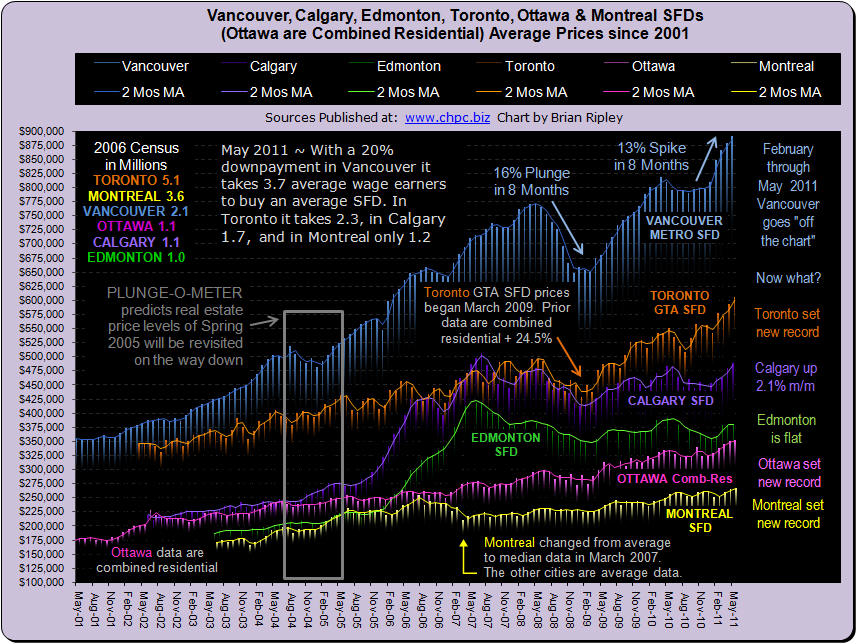
Click on Chart for Larger image:
Bank of Canada Mark Carney in a speech to the Vancouver Board of Trade issued a sharp warning that the Canadian Housing Market is extremely vulnerable to a decline, a decline which will put the financial system at risk. Even as growth in mortgage credit has started to slow and prices are expected to moderate, investment in residential properties nationwide is now near “peak levels”, the Governor said.
“The risk is that expectations become extrapolative, prompting the classic market emotions of fear and greed – greed among speculators and investors, and fear among households that getting a foot on the property ladder is a now-or-never proposition.”
Recent data from the Canadian Real Estate Association report shows that Vancouver, where the average selling price is now 11 times higher than the average household income, isn’t the only market that’s overvalued. Housing is also at All-Time Highs in Toronto and Montreal with gains of 8.7 per cent in Toronto and 6 per cent in Montreal. Ottawa is also at all-time highs. Nationally prices rose 8.6 per cent in May to $376,820 from $346,950 compared to a year ago
Carney came as close as any central banker ever could on Wednesday to saying some parts of the Canadian housing market are in a bubble with some cities prices now 13 per cent above their pre-recession peaks, He also basically said there’s not much the Bank of Canada can do to stop the frenzy. Without saying the Bank of Canada will take specific measures to tame the sector, Mr. Carney left little doubt that he is concerned.
“Some excesses may exist in certain areas and market segments.” “Do we obsess about specific real estate markets in Canada? No, Our job is to manage policy for the country as a whole.”
Regarding Stimulus: “some (of the stimulus will ) eventually (be) withdrawn.”
Households “highly vulnerable to an adverse economic shock” have risen to the highest in 9 years.
Banks are also highly vulnerable, with real estate loans now making up more than 40 per cent of Canadian banks’ assets, compared with 30 per cent a decade ago, a situation he called “unprecedented exposure.” “Housing excesses could generate important vulnerabilities in the financial system,”
“One cannot totally discount the possibility that some pockets of the Canadian housing market are taking on characteristics of financial asset markets, where expectations can dominate underlying forces of supply and demand,” Mr. Carney said.
No market goes up forever. Every market is subject to bull and bear phases, even Canadian Housing.

